Grants awarded by the Research Foundation have touched the lives of students and general surgery residents who are considering colorectal surgery as a career, colorectal surgeons who want to further their research knowledge, and, in the long run, our patients who benefit from the focus on research. For many award recipients, it is the beginning of a career in medicine with a concentration on research to find solutions for the future.
Below are examples of how the ASCRS Research Foundation grants have helped recipients to grow in the profession of colorectal surgery.
Career Development Awards
 “I am extremely grateful to the Research Foundation for this critical early support in my career development. With this initial support, I was able to lay the groundwork for a successful five-year K08 Mentored Clinical Scientist Research Career Development Award from the National Institute on Aging (NIA), which will ensure I have appropriate funding support for academic development until 2020. It also allowed me to provide matching funds for the NIA GEMSSTAR/Jahnigen Scholars Program, which I was awarded shortly thereafter. I surely would not have been as competitive for this award without The Research Foundation support. As a result of this award, I will be able to generate a long line of research into understanding the clinical underpinnings of efficient care around colectomy. And it has provided a platform for mentoring residents and students in numerous projects.”
“I am extremely grateful to the Research Foundation for this critical early support in my career development. With this initial support, I was able to lay the groundwork for a successful five-year K08 Mentored Clinical Scientist Research Career Development Award from the National Institute on Aging (NIA), which will ensure I have appropriate funding support for academic development until 2020. It also allowed me to provide matching funds for the NIA GEMSSTAR/Jahnigen Scholars Program, which I was awarded shortly thereafter. I surely would not have been as competitive for this award without The Research Foundation support. As a result of this award, I will be able to generate a long line of research into understanding the clinical underpinnings of efficient care around colectomy. And it has provided a platform for mentoring residents and students in numerous projects.”
Scott Regenbogen, MD, University of Michigan, a 2014 Career Development Grant awardee for the study, “Enhanced Recovery Protocols and the cost and quality of colectomy in Michigan.”
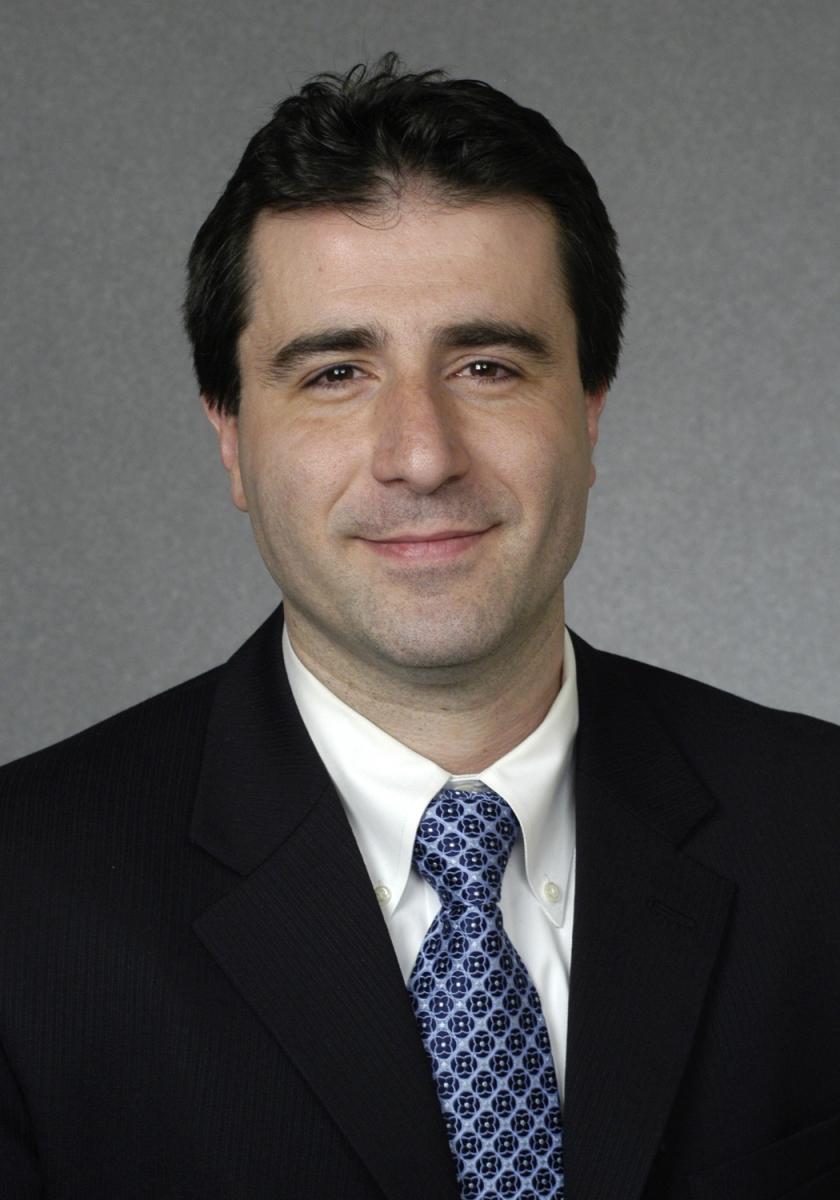 "The CDA provided me with time, funds, and mentors to develop clinical research questions in several areas of colorectal surgery. In addition, the research and leadership experiences that I obtained from the CDA gave me the tools to cultivate a relationship with the Tufts University CTSI and my present position as Chief Scientific Officer at Lahey Health.”
"The CDA provided me with time, funds, and mentors to develop clinical research questions in several areas of colorectal surgery. In addition, the research and leadership experiences that I obtained from the CDA gave me the tools to cultivate a relationship with the Tufts University CTSI and my present position as Chief Scientific Officer at Lahey Health.”
Dr. Rocco Ricciardi, Lahey Health, a 2007 awardee for the study “Population-Based Analysis of Variability in Sphincter Sparing Surgery.”
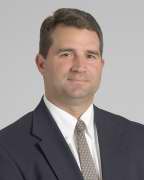 “I am grateful to have been a beneficiary of the ASCRS Research Foundation. It supported me through a Career Development Award which provided the resources and support as I started my early research career. Using this mechanism, I was able to study the genetics of rectal cancer, using technology which may not have been otherwise afforded. Both the mentored training and the information learned from this project have allowed me to advance my career through publications, presentations, and developing preliminary data for future projects and funding, including an R01 grant from the NCI. The CDA was an essential part of my maturity as a researcher and I am deeply thankful. I continue to run a funded translational science lab in my current position at Ohio State University.”
“I am grateful to have been a beneficiary of the ASCRS Research Foundation. It supported me through a Career Development Award which provided the resources and support as I started my early research career. Using this mechanism, I was able to study the genetics of rectal cancer, using technology which may not have been otherwise afforded. Both the mentored training and the information learned from this project have allowed me to advance my career through publications, presentations, and developing preliminary data for future projects and funding, including an R01 grant from the NCI. The CDA was an essential part of my maturity as a researcher and I am deeply thankful. I continue to run a funded translational science lab in my current position at Ohio State University.”
Dr. Matthew Kalady, Cleveland Clinic, a 2007 awardee for the study “Predictive Genetic Profiling of Early Stage Rectal Cancer.”
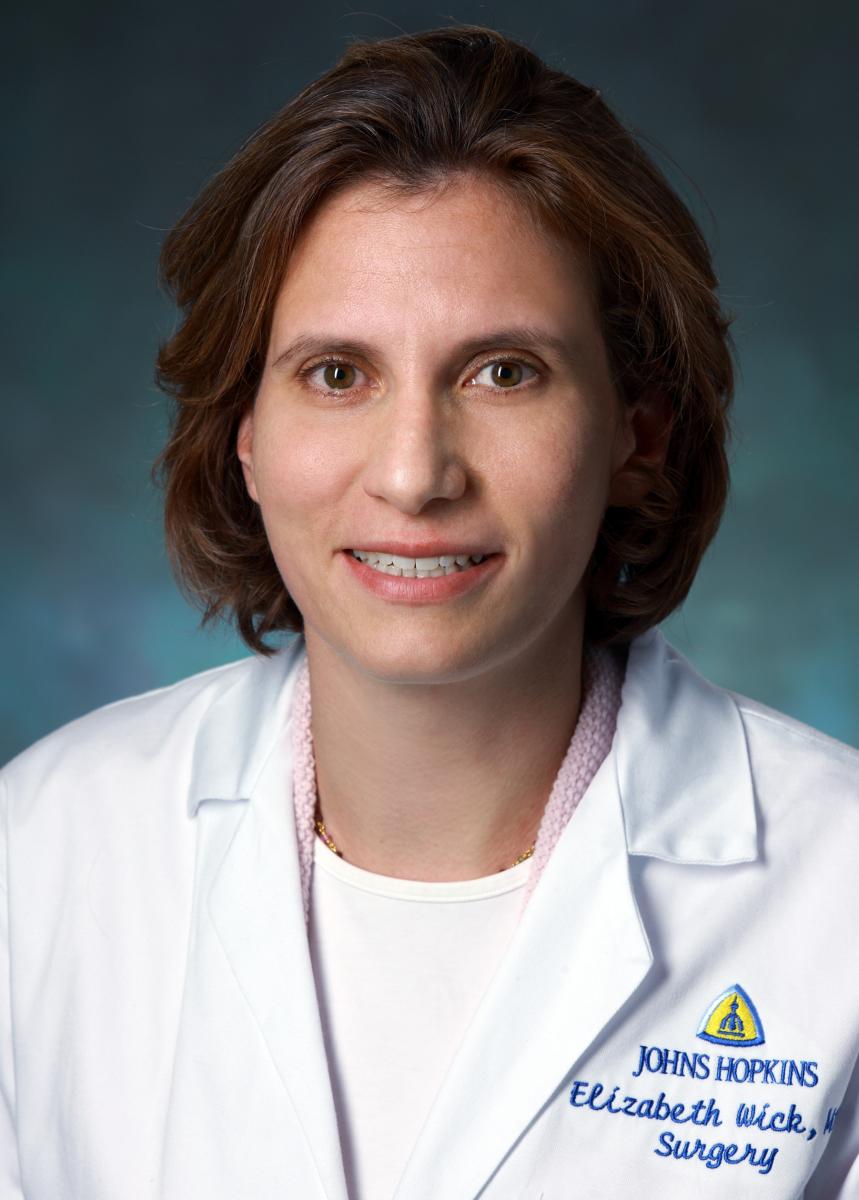 "The Career Development Award from the ASCRS Research Foundation helped to launch my academic career. I will always be grateful to the ASCRS for giving me this opportunity."
"The Career Development Award from the ASCRS Research Foundation helped to launch my academic career. I will always be grateful to the ASCRS for giving me this opportunity."
Dr. Elizabeth Wick, Johns Hopkins Medicine, 2009 Awardee for the study “Colorectal Carcinogenesis: Contributions of Colonic Flora, Stat3 and IL-17.”
General Surgery Resident Research Initiation Grants
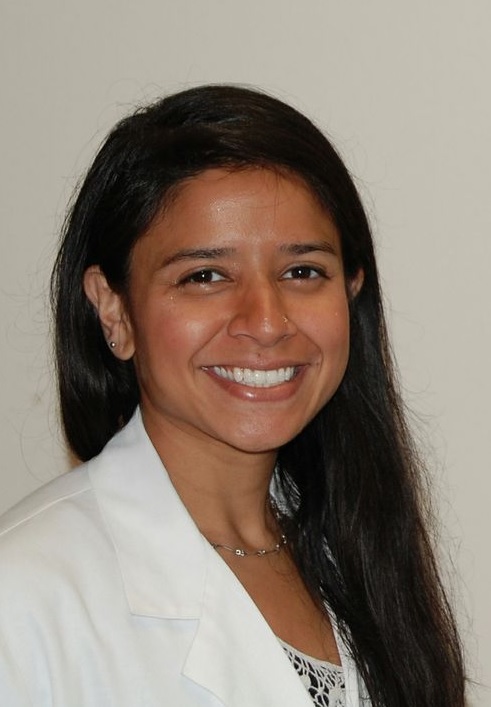 “Receiving the Research Foundation grant two years in a row has allowed me to pursue studies to improve care for colorectal surgery patients in a limited resource setting. In addition, the grant has supported my research training culminating in a Master’s Degree in Clinical Research and resulting in multiple publications and presentations. I hope to use the knowledge I have gained in my future academic surgical career to advance the evidence base and promote high quality care in colorectal surgery.”
“Receiving the Research Foundation grant two years in a row has allowed me to pursue studies to improve care for colorectal surgery patients in a limited resource setting. In addition, the grant has supported my research training culminating in a Master’s Degree in Clinical Research and resulting in multiple publications and presentations. I hope to use the knowledge I have gained in my future academic surgical career to advance the evidence base and promote high quality care in colorectal surgery.”
Dr. Uma R. Phatak, University of Texas Medical School at Houston, a 2011 and 2012 awardee for the studies:
2011 – “Variations in Outcome for Colorectal Cancer Surgery”
2012 – “Implementation of Best Practices in Colorectal Surgery”
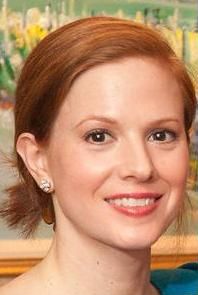 “I am very grateful for the support of the Research Foundation through the General Surgery Resident Research Initiation Grant (GSRRIG) which has helped fund two years of research investigating microbial and genetic mechanisms of colorectal cancer at Johns Hopkins University. During this time, I have been able to develop basic science and translational research skills which will be invaluable as I complete residency training and embark on an academic career in colorectal surgery. Overall, the GSRRIG has been an outstanding opportunity.”
“I am very grateful for the support of the Research Foundation through the General Surgery Resident Research Initiation Grant (GSRRIG) which has helped fund two years of research investigating microbial and genetic mechanisms of colorectal cancer at Johns Hopkins University. During this time, I have been able to develop basic science and translational research skills which will be invaluable as I complete residency training and embark on an academic career in colorectal surgery. Overall, the GSRRIG has been an outstanding opportunity.”
Dr. Elizabeth Hechenbleikner, Johns Hopkins University, 2012 awardee for the study “Microbial and Genetic Mechanisms of Colon Cancer.”
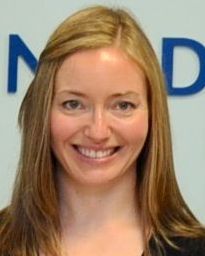 “Without funding from the Research Foundation GSRRIG, my research project would nothave been possible. Based on this research I earned a Master’s of Science degree in Community Health & Epidemiology and I published a number of peer-reviewed abstracts and papers. Not only did this give me a solid foundation in clinical research, it also helped me to confirm my interest in colorectal surgery as a career. In July 2013 I will begin the colorectal fellowship training program at the University of Toronto.”
“Without funding from the Research Foundation GSRRIG, my research project would nothave been possible. Based on this research I earned a Master’s of Science degree in Community Health & Epidemiology and I published a number of peer-reviewed abstracts and papers. Not only did this give me a solid foundation in clinical research, it also helped me to confirm my interest in colorectal surgery as a career. In July 2013 I will begin the colorectal fellowship training program at the University of Toronto.”
Devon Richardson, PGY 5 General Surgery, Dalhousie University, 2008 awardee for the study “Nova Scotia Rectal Cancer Project: A Population Based Assessment of Rectal Cancer Care and Outcomes.”
International Fellowship Grants
“I am very grateful for the great opportunity the Research Foundation International Fellowship offered me. As a foreign citizen, the opportunities for grant applications are very limited. The majority are aimed towards US citizens or permanent residents; thus, the ASCRS International Fellowship opened the door for me to pursue my career goals of becoming a true surgeon-scientist. The Fellowship laid the foundation for an innovative basic science project and allowed me to become a competitive candidate when applying for surgical residency.”
Dr. Awad Jarrar, Cleveland Clinic Foundation, a 2011 awardee for the study “Chemoresistance and the Colorectal Cancer Microenvironment"
Limited Project Grants
“The funding from the Research Foundation helped us develop and validate a comprehensive training curriculum in laparoscopic colorectal surgery. Most importantly, this curriculum is now implemented as a mandatory component of the resident training program at the University of Toronto and has made a difference in the way we educate our trainees.”
Dr. Teodor Grantcharov and Dr. Vanessa Palter, University of Toronto, 2011 awardees for the study “Development and Validation of a Curriculum for Laparoscopic Colorectal Surgery” (Above quote is from Dr. Grantcharov.)
“The American Society of Colon & Rectal Surgeons Research Foundation’s 2009 LPG Grant, “Studies on Proteomic Patterns to Discriminate Inflammatory Colitides,” was my first award. This award was the foundation that opened up my research direction. It significantly permitted me to generate preliminary data that has allowed me to publish several peer-reviewed publications and submit grant applications to the National Institutes of Health.”
Dr. Amosy Ephreim M'Koma, Meharry Medical College, 2010 awardee for the study "Studies on Proteomic Patterns to Discriminate Inflammatory Colitides."
Medical Student Research Initiation Grants
“This small grant has had a huge impact on Sebastien’s life as a medical student. It provided the financial resources he needed to spend his summer doing research which otherwise he would not have been able to do. In addition, he was able to present his work in a few scientific meetings including the ASCRS Annual Meeting in Phoenix as well as at the recent resident/fellow competition of the South Florida Chapter of the American College of Surgeons, where he won third prize for his presentation. Moreover, his research experience in the field of colorectal surgery has been positive enough that he is now considering becoming a colorectal surgeon once he graduates from medical school.”
Dr. Sebastien Millette was the 2012 awardee for the study “Perineural Invasion as an Effective Prognostic Factor in Colorectal Cancer.”
"The Medical Student Research Grant from the ASCRS Foundation allowed Abdul to pursue his interest in surgical education. He met a wide variety of surgeons and surgical trainees and learned the importance of advanced surgical skills in laparoscopic colorectal surgery. As a result, he is applying for residency in general surgery."
Dr. Alan Harzman, The Ohio State University, mentor of Abdulfatah Issak, who was a 2010 awardee for the study “Working Against the Camera.”
“Thanks to the generous ASCRS grant, I was able to get my project started earlier than anticipated. Although we are looking at a relatively rare entity in a colon cancer genetic syndrome, it is still an important clinical question to be answered, and I appreciate the ASCRS being willing to invest in this research question.”
Xiaoxi (Chelsea) Feng, 2012 awardee for the study “Analysis of Benign and Malignant Thyroid Disease in FAP Patients.”
Norman Nigro, MD Limited Project Grant Research Award
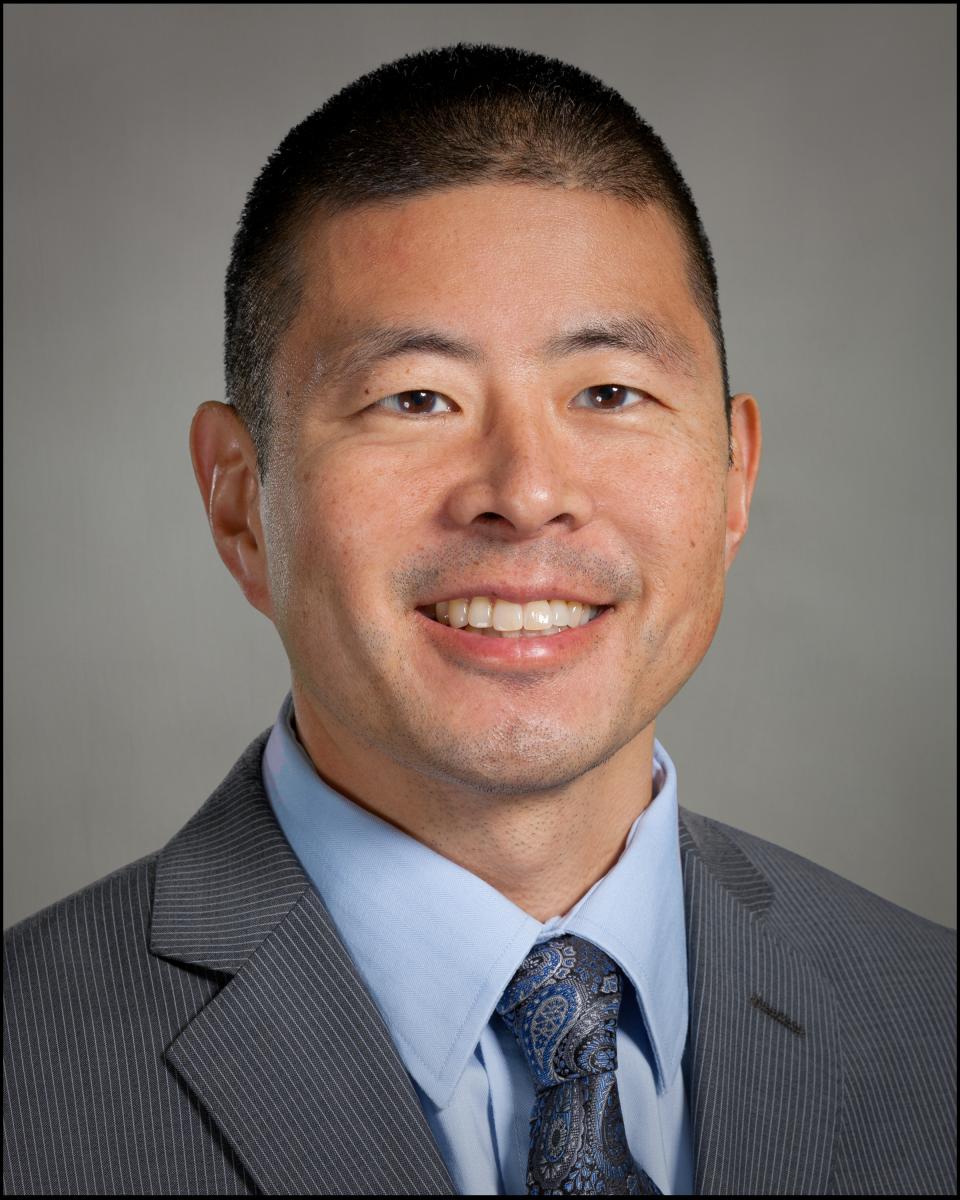 “With the current climate of reduced funding lines, the ASCRS Research Foundation's Grant Program is an extraordinary resource that allows colorectal surgeons to continue to engage in meaningful research. The Norman Nigro LPG has allowed us to generate high quality preliminary data with respect to developing a methylomic signature of treatment response in anal cancer. Some of our findings were presented at the 2013 ASCRS Annual Meeting in Phoenix and we were fortunate to receive an award for Best Clinical Podium Presentation. These data also comprise the foundation of a grant application that was recently submitted to the NIH. We are very much grateful to ASCRS and the Research Foundation for supporting investigators at all career levels.”
“With the current climate of reduced funding lines, the ASCRS Research Foundation's Grant Program is an extraordinary resource that allows colorectal surgeons to continue to engage in meaningful research. The Norman Nigro LPG has allowed us to generate high quality preliminary data with respect to developing a methylomic signature of treatment response in anal cancer. Some of our findings were presented at the 2013 ASCRS Annual Meeting in Phoenix and we were fortunate to receive an award for Best Clinical Podium Presentation. These data also comprise the foundation of a grant application that was recently submitted to the NIH. We are very much grateful to ASCRS and the Research Foundation for supporting investigators at all career levels.”
Dr. David Shibata, H. Lee Moffitt Cancer Center & Research Institute, who was 2011 awardee for his study “Epigenetic Signatures of Anal Cancer Outcomes.”